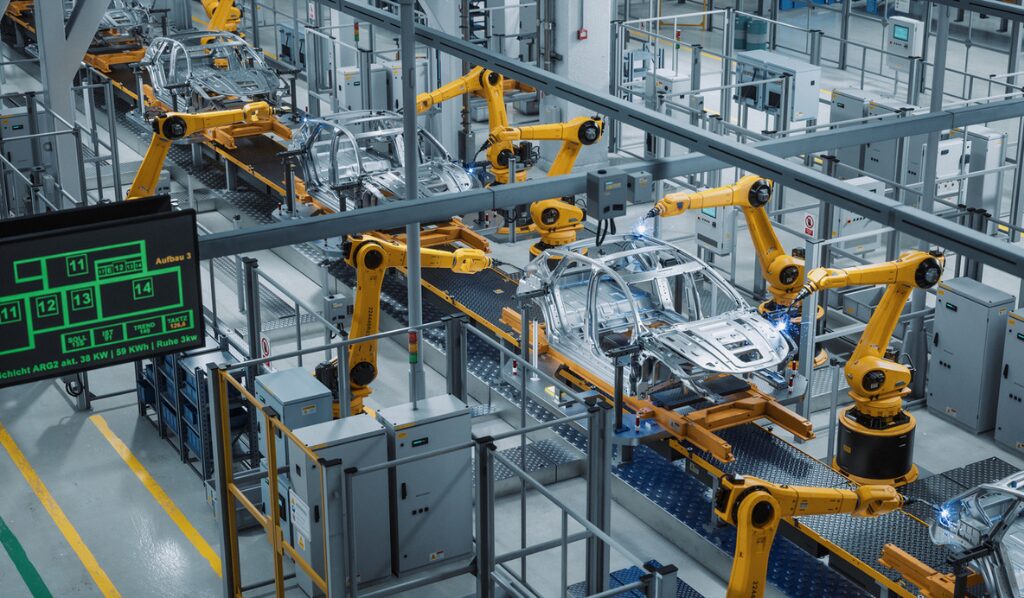Over the last few years, an increased focus has been on automating manufacturing processes. Factory automation is an ideal solution to improving productivity and cutting costs, both of which are goals of most factories today. This post will examine why factories need automation in modern history and how it has changed how factories produce.
Increased Efficiency
Manufacturing efficiency gets an immense boost from automation. Machines will always be faster than human workers while carrying out repetitive tasks. They make fewer mistakes than humans and thus are not prone to errors as well. Such speed adds not just efficiency to this process but also consistency to the level of quality of products. This means factories can fulfil greater demands without reducing quality through automation.
Cost Reduction
The primary benefit of manufacturing process automation is lower costs. Eventually, the cost of labor will reduce because of automated systems. The upfront investment in technology may be significant, but the cost savings over the long term are monumental. Automated systems continuously operate, minimizing overtime and saving the human resources budget.
Quality Improvement
Automation contributes to consistent quality. Automation in manual processes is usually prone to human error, a primary cause of deviations and defects. Automated systems know exactly what to do, making every product identical. Such consistency boosts consumer trust while reducing waste, as fewer defective products are being manufactured.
Enhanced Safety
One of the top priorities in manufacturing is worker safety. By minimizing human involvement in dangerous tasks, automation helps to prevent accidents. Hazardous processes are carried out with machines while the workers are not exposed to any dangers. Automation also has a huge role in safeguarding employees, minimizing the chances of expensive workplace accidents.
Flexibility and Scalability
Automation provides the flexibility and scalability that modern factories need. These systems are easily adaptable to production changes, enabling factories to respond quickly to increased output or new products. This flexibility is the need of the hour to remain in the market race.
Data-Driven Decisions
Automation helps collect and analyze data, providing insights. This enables industries to check production processes in real time and detect processes that require improvement. When businesses make decisions based on data instead of gut feelings or fuzzy feelings about the effectiveness of this or that process, they can also become more efficient and productive.
Environmental Benefits
Automation also brings environmental advantages. And more efficient machinery means less energy, which means lower carbon emissions from manufacturing processes. Also, accurate production minimizes wastage and ensures sustainability. With automation in factories, companies can follow eco-friendly initiatives and create products that will attract commercial consumers with eco-friendly initiatives.
Skill Development
Although automation reduces manual labor, it creates space for skill development. It allows workers to concentrate on elevated tasks like machine maintenance and process optimization, creating a more skilled workforce to handle new technology.
Challenges and Considerations
Automation has several advantages, but it also has its share of problems. That means initial costs can be high, which means you need a strategist to get it all right. Moreover, the change could also require redundancy in the workforce, requiring training and assistance for workers. Based on that, factories have to do what we do better while letting machines take over more and more tasks without cost-wise getting rid of all human resources.
Conclusion
Nowadays, any factory will most likely be automated to some extent, and in order to achieve this, every manufacturing process needs to be automated. Automation makes for higher efficiency, lower costs, and improved quality with safety and flexibility. While some challenges are faced, the advantages of automation cannot be denied. Factories that embrace technological advancements are simply preparing themselves for the ever-competitive world. Automated operations are not optional; they are a prerequisite of scalable efficiency.































